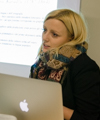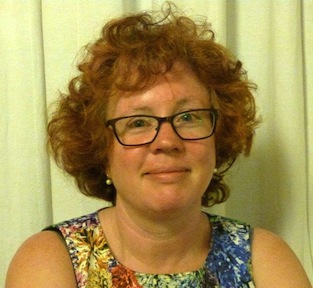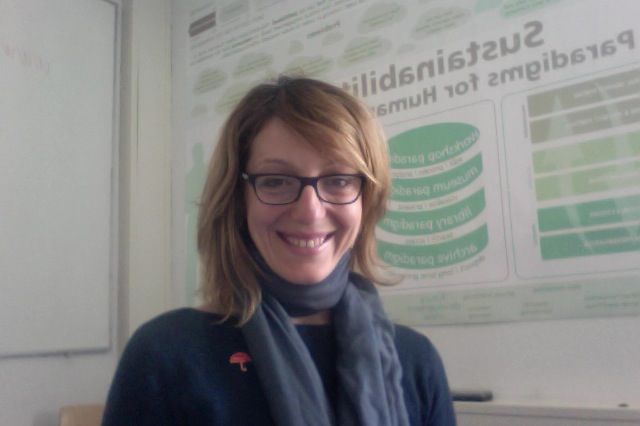Studying at the University of Verona
Here you can find information on the organisational aspects of the Programme, lecture timetables, learning activities and useful contact details for your time at the University, from enrolment to graduation.
Academic calendar
The academic calendar shows the deadlines and scheduled events that are relevant to students, teaching and technical-administrative staff of the University. Public holidays and University closures are also indicated. The academic year normally begins on 1 October each year and ends on 30 September of the following year.
Course calendar
The Academic Calendar sets out the degree programme lecture and exam timetables, as well as the relevant university closure dates..
| Period | From | To |
|---|---|---|
| Semester 1 | Oct 2, 2017 | Jan 20, 2018 |
| Semester 2 | Feb 26, 2018 | Jun 9, 2018 |
| Session | From | To |
|---|---|---|
| Winter session | Jan 22, 2018 | Feb 24, 2018 |
| Summer session | Jun 11, 2018 | Jul 28, 2018 |
| Autumn session | Aug 27, 2018 | Sep 22, 2018 |
| Session | From | To |
|---|---|---|
| LAUREE LINGUE - sessione autunnale a.a. 2016/2017 | Dec 18, 2017 | Dec 21, 2017 |
| LAUREE LINGUE - sessione invernale a.a. 2016/2017 | Mar 23, 2018 | Mar 29, 2018 |
| LAUREE LINGUE - sessione estiva | Jul 16, 2018 | Jul 21, 2018 |
| LAUREE LINGUE - sessione autunnale | Nov 12, 2018 | Nov 17, 2018 |
| LAUREE LINGUE - sessione invernale | Apr 12, 2019 | Apr 18, 2019 |
| Period | From | To |
|---|---|---|
| All Saints Day | Nov 1, 2017 | Nov 1, 2017 |
| Immaculate Conception | Dec 8, 2017 | Dec 8, 2017 |
| Christmas break | Dec 22, 2017 | Jan 7, 2018 |
| Easter break | Mar 30, 2018 | Apr 3, 2018 |
| Liberation Day | Apr 25, 2018 | Apr 25, 2018 |
| Labour Day | May 1, 2018 | May 1, 2018 |
| Patron Saint Day | May 21, 2018 | May 21, 2018 |
| Republic Day | Jun 2, 2018 | Jun 2, 2018 |
| Summer break | Aug 13, 2018 | Aug 18, 2018 |
Exam calendar
Exam dates and rounds are managed by the relevant Foreign Languages and Literatures Teaching and Student Services Unit.
To view all the exam sessions available, please use the Exam dashboard on ESSE3.
If you forgot your login details or have problems logging in, please contact the relevant IT HelpDesk, or check the login details recovery web page.
Academic staff
 alessandro.bigardi@univr.it
alessandro.bigardi@univr.it

Bradas Marija
 marija.bradas@univr.it
marija.bradas@univr.it
 paolamaria.caleffi@univr.it
paolamaria.caleffi@univr.it
 veronica.gobbato@univr.it
veronica.gobbato@univr.it
 tiziana.mancinelli@univr.it
tiziana.mancinelli@univr.it
 sara.paolini@univr.it
sara.paolini@univr.it
 fabioantonio.scrignoli@univr.it
fabioantonio.scrignoli@univr.it
Study Plan
The Study Plan includes all modules, teaching and learning activities that each student will need to undertake during their time at the University.
Please select your Study Plan based on your enrollment year.
1° Year
| Modules | Credits | TAF | SSD |
|---|
1st foreign language2nd foreign language1st foreign literature2nd foreign literature2° Year activated in the A.Y. 2018/2019
| Modules | Credits | TAF | SSD |
|---|
1st foreign language2nd foreign language1st foreign literature2nd foreign literatureOne course to be chosen among the following3° Year activated in the A.Y. 2019/2020
| Modules | Credits | TAF | SSD |
|---|
1st foreign language2nd foreign languagePhilology of the first or second language| Modules | Credits | TAF | SSD |
|---|
1st foreign language2nd foreign language1st foreign literature2nd foreign literature| Modules | Credits | TAF | SSD |
|---|
1st foreign language2nd foreign language1st foreign literature2nd foreign literatureOne course to be chosen among the following| Modules | Credits | TAF | SSD |
|---|
1st foreign language2nd foreign languagePhilology of the first or second language| Modules | Credits | TAF | SSD |
|---|
Legend | Type of training activity (TTA)
TAF (Type of Educational Activity) All courses and activities are classified into different types of educational activities, indicated by a letter.
Italian literature for publishing (2017/2018)
Teaching code
4S002897
Teacher
Coordinator
Credits
6
Language
Italian
Scientific Disciplinary Sector (SSD)
L-FIL-LET/10 - ITALIAN LITERATURE
Period
Semester 1 dal Oct 2, 2017 al Jan 20, 2018.
Learning outcomes
The main aim of this course is to give an introduction to the history of the Italian literature through the direct analysis of a corpus of texts on issues of particular interests. Special attention will be given to the authors of the Eighteenth century.
At the end of the course the student will be able to
- contextualize, understand and comment autonomously a literary text;
- look at literary text as a complex body, in constant dialogue with other areas of Western culture and in particular in close relation with the editorial world that allows its spread and success;
- move with competence in the framework of Italian literary tradition and its main thematic and formal characteristics, with particular attention to intersections with European literatures.
With regard to attending students, teaching methods consist of frontal lessons dedicated to the thematic areas of the course. In the classroom, students' active and attended participation will be encouraged, including through works submitted by students, guided lessons and textual analysis.
The e-learning platform is used for active communication between teacher and students and to provide anthology of texts and additional support material.
With regard to non-attending students, teaching methods consist of a teacher's support to the study of the texts. Any further updates will be made available in good time to the student through the e-learning platform.
Throughout the academic year, there is also an individual reception service handled by the teachers, at times shown on the web pages and constantly updated.
Program
The course will begin with an introduction to the method of study and research in literary subjects. A brief introduction to the Italian literature of the eighteenth century will be given. Students will be required to know the main lines of the history of Italian literature in the eighteenth century: to prepare this part the student could use a good history of Italian literature for the high schools; for example: ALBERTO BENISCELLI, Il Settecento, Il Mulino, Bologna.
2) The course will focus on the relationship between literature and publishing in the 18th century, and attention will be given to the most popular kind of literature in the 18th century, the epistle, which was also preferred by publishers. To prepare this part, the student will use the notes taken in class, and will integrate with the reading of parts of the following text:
Fabio Forner, Scrivere lettere nel XVIII secolo: precettistica, prassi e letteratura, Verona, QuiEdit, 2012.
Additional references will be provided during the course.
Students who did not attend to the lessons will be able to prepare the second part of the exam by studying the text: Fabio Forner, Scrivere lettere nel XVIII secolo: precettistica, prassi e letteratura, Verona, QuiEdit, 2012.
| Author | Title | Publishing house | Year | ISBN | Notes |
|---|---|---|---|---|---|
| Alberto Beniscelli | Il Settecento, | Bologna, Il Mulino | 2015 | ||
| Fabio Forner | Scrivere lettere nel 18. secolo, precettistica, prassi e letteratura. Premessa di Amedeo Quondam. Seconda edizione, ampliata e rivista (Edizione 2) | Verona, QuiEdit, | 2020 | 978-88-6464-582-7 |
Examination Methods
The assessment of the preparation will take place through an examination in part written and partly oral, intended to verify above all the direct knowledge and the ability to analyze the texts. The written exam, which will be an ongoing test for attending students, will focus on the first part of the course. Regarding the first part, the student will be required to know the main lines of Italian literary history in the eighteenth century. The student will have to pay particular attention to the following authors:Pietro Metastasio, Cesare Beccaria, Scipione Maffei, Lodovico Antonio Muratori, Gasparo Gozzi, Carlo Goldoni, Giuseppe Parini, Vittorio Alfieri. The student must know the content of at least two works of each author. The student will mainly prepare this part of the exam independently.
The first part of the exam is therefore written and has a maximum duration of 30 minutes; the first question will concern the biography of an author, the second will ask to illustrate two works chosen by the student of that same author. The first part of the exam is the same for both attending and non-attending students.
ATTENTION: FOR THE FIRST APPEAL IN JANUARY 2018, BECAUSE OF THE HIGH NUMBER OF MEMBERS, ALSO THE SECOND PART OF THE EXAM WILL BE IN WRITTEN FORM.
The second part of the exam is oral, BUT SHALL BE WRITTEN FOR THE FIRST APPEAL OF JANUARY 2018;
The second part of the exam will test the level of learning of the second part of the course. The student who has chosen the program for attending students will need to know the most important eighteenth-century writing manuals, the editorial practices related to the publication of these manuals; The most successful 18th century books of letter and their editorial history. In particular, the student is required to know the biography and works of the three authors treated during the course (GA Costantini, P. Chiari and G. Gozzi): in the written exam, which will last 30 minutes, the first question will focus on one of the three authors , the second on one of the texts analyzed during the course of that same author.
Non-attending students will study for this second part the manual Scrivere lettere nel XVIII secolo, mentioned in the bibliography: in the written examination, which will last 30 minutes, the demand will focus on one of the textbook to write letters and the student will be asked to explain in particular the editorial history, the structure and the content of the manual of that same author.
Students may decide to support the two parts of the exam in the same appeal, or in two separate appeals.
The vote will be expressed in 30/30.
Type D and Type F activities
To discover all the teaching activities accredited by the foreign teaching college click here
Career prospects
Module/Programme news
News for students
There you will find information, resources and services useful during your time at the University (Student’s exam record, your study plan on ESSE3, Distance Learning courses, university email account, office forms, administrative procedures, etc.). You can log into MyUnivr with your GIA login details: only in this way will you be able to receive notification of all the notices from your teachers and your secretariat via email and soon also via the Univr app.
Student login and resources
Assegnazione tutore
Attività accreditate D/F
Calendario didattico dettagliato
Cambio lingua curriculare
Competenze informatiche
Competenze linguistiche (prima e seconda lingua)
Competenze linguistiche in triennale (terza lingua CFU F)
Compilazione del piano didattico
Corso di Lingua portoghese
Erasmus+ e altre esperienze all'estero
Linguistic training CLA
Graduation
List of theses and work experience proposals
| Stage | Research area |
|---|---|
| PROGETTO MAMBRINO Stage per bibliografia | Various topics |
Stage e tirocini
Nel piano didattico della laurea triennale in Lingue e culture per l’editoria (L11 ED) è previsto un tirocinio/stage obbligatorio (CFU 6).
Le attività di stage sono finalizzate a far acquisire allo studente una conoscenza diretta in settori di particolare interesse per l’inserimento nel mondo del lavoro e per l’acquisizione di abilità professionali specifiche.
Le attività di stage sono svolte sotto la diretta responsabilità di un singolo docente presso studi professionali, enti della pubblica amministrazione, aziende accreditate dall’Ateneo veronese.
I crediti maturati in seguito ad attività di stage saranno attribuiti secondo quanto disposto nel dettaglio dal “Regolamento d’Ateneo per il riconoscimento dei crediti maturati negli stage universitari” vigente.
- Tutte le informazioni in merito agli stage per futuri studenti sono disponibili alla pagina Stage e tirocini.
- Tutte le informazioni in merito agli stage per studenti iscritti sono pubblicate in MyUnivr - come fare per - stage e tirocini.
- Tutte le informazioni in merito agli stage per le aziende sono disponili alla pagina Stage e tirocini per azienze.
Ulteriori informazioni al seguente link https://www.univr.it/it/i-nostri-servizi/gestione-carriere-studenti-lingue-e-letterature-straniere/stage-e-tirocini-lingue-e-letterature-straniere


 +39 045802 8465
+39 045802 8465





























